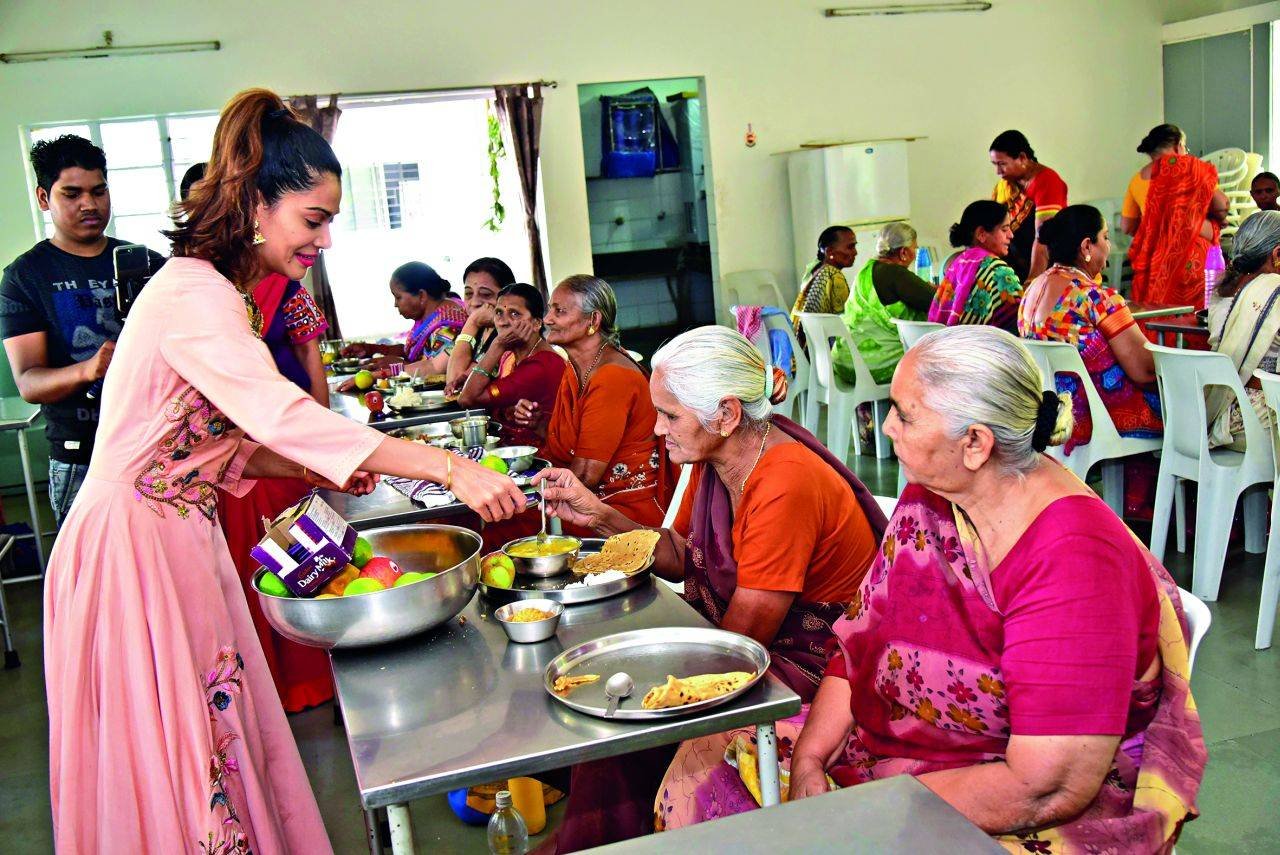[Are There Free Old Age Homes in India?](/are-there-free-old-age-homes-in-india/) As India’s population rapidly ages, the demand for affordable and accessible elderly care options is growing. One of the most pressing questions facing seniors and their families is whether there are free old age homes in India. In this article, we will explore the availability of free and low-cost old age homes in India, examining the eligibility criteria, application process, and the services provided by these facilities. We will also discuss the challenges and limitations of the current system and suggest ways to improve the provision of elderly care in India.
Key Takeaways:
- Free old age homes exist in India, such as Daanpatra Foundation, Shraddhanand Mahilashram, and Akshaya Trust.
- Eligibility typically includes Indian citizenship, a minimum age requirement, and limited income or support.
- Applications involve submitting forms and providing proof of identity and income.
- Amenities include lodging, meals, healthcare, activities, and social support.
- Some homes charge nominal fees, while others are completely free.
- NGOs like HelpAge India support old age homes.
Are there free old age homes in India?

Yes, there are indeed free old age homes in India. These institutions provide shelter, food, and care to elderly citizens who are often abandoned, homeless, or lack support from their families.
Types of Free Old Age Homes
Free old age homes in India can be operated by various organizations, including:
- Non-profit organizations
- Religious institutions
- Government agencies
- Private individuals
Each home may have its unique set of rules and regulations, but they generally share the common goal of providing a safe and supportive environment for elderly citizens.
Eligibility and Application Process
Eligibility criteria for free old age homes typically include:
- Indian citizenship
- Minimum age (usually 60 years or above)
- Limited income or lack of family support
The application process usually involves submitting an application form and providing documentation of identity and income. Some homes may also conduct interviews or home visits to assess the applicant’s needs.
Services Offered
Free old age homes provide a range of services to meet the needs of their residents, including:
- Lodging
- Meals
- Healthcare
- Recreational activities
- Social support
Some homes may offer additional services such as physiotherapy, occupational therapy, and counseling.
How to Find a Free Old Age Home
If you are looking for a free old age home in India, here are some steps you can follow:
- Contact local NGOs or social welfare organizations.
- Search online directories of old age homes in India.
- Ask your local government or community center for referrals.
- Visit the websites of individual old age homes to learn about their eligibility criteria and services.
Conclusion
Free old age homes play a vital role in providing care and support to elderly citizens in India. By offering a safe and supportive environment, these homes help our seniors live with dignity and well-being.
If you’re looking for places where you can live without paying anything, you can learn more about are there free old age homes by clicking here. If you’re in South Africa, you can learn more about are there free old age homes in south africa by clicking here.
Limitations and challenges faced by free old age homes in India

India, like many other countries, has seen a rapid increase in its ageing population. While traditional family support systems have been the backbone of eldercare in India, the rising number of nuclear families and changing societal norms have led to a growing need for institutional care facilities for the elderly. Free old age homes are one such option, but they come with their own set of limitations and challenges.
Limited availability and accessibility: Free old age homes are often in high demand, with waiting lists stretching for several years. This limited availability can make it difficult for seniors to find a suitable home when they need it most.
Insufficient funding and resources: Many free old age homes operate on a shoestring budget, relying on donations and grants to cover their expenses. This can lead to a lack of basic amenities, such as adequate healthcare, nutritious food, and proper sanitation.
Staffing shortages: Free old age homes often struggle to attract and retain qualified staff, due to low salaries and limited career advancement opportunities. This can lead to overworked and underpaid staff, who may not be able to provide the best possible care to the residents.
Social isolation and loneliness: Residents of free old age homes may experience social isolation and loneliness, as they may be separated from their families and friends. This can have a negative impact on their mental and emotional well-being.
Lack of personalization: Free old age homes often provide a standardized level of care, which may not meet the individual needs of each resident. This can lead to a lack of personalization and a feeling of institutionalization.
Key Takeaways:
- Free old age homes face challenges such as limited availability, insufficient funding, staffing shortages, social isolation, and lack of personalization.
- Despite these challenges, free old age homes provide a valuable service to seniors who may not have other options for care.
- It is important to support and strengthen these homes to ensure that they can continue to provide quality care to the elderly population.
Relevant URLs:
- UNFPA India: India Ageing Report 2023
- Springer: Old Age Homes in India: Sharing the Burden of Elderly Care
Role of NGOs and charitable organizations in providing free old age homes
India’s aging population has garnered attention due to its increasing needs and challenges. While the government plays a role, NGOs have become integral in addressing elderly issues.
NGOs support old-age homes, raise awareness, and advocate for elderly rights. Here’s their pivotal role:
1. Support to Old-Age Homes
NGOs provide critical support to old-age homes by:
– Donating resources such as food, clothing, and medical supplies
– Volunteer to assist with care and companionship
2. Raising Awareness
NGOs raise awareness about the needs of the elderly through:
– Public campaigns and educational programs
– Advocating for policy changes to improve elderly care
3. Advocacy for Elderly Rights
NGOs play a crucial role in advocating for:
– Access to proper healthcare
– Protection against elder abuse
– Social security and financial support
Role of NGOs and charitable organizations in providing free old age homes:
* Many NGOs operate free old-age homes, providing shelter, food, and basic care to elderly individuals in need.
* These homes offer a safe and supportive environment for seniors, often catering to those without family or financial resources.
* NGOs work in partnership with the government and other organizations to ensure that the elderly have access to essential services and support.
Key Takeaways:
- India’s elderly population faces challenges that NGOs help address.
- NGOs support old-age homes, raise awareness, and advocate for elderly rights.
- Their role is significant in ensuring the well-being and dignity of India’s elderly citizens.
Relevant URL Sources:
- Voluntary Organisations Working for Older Persons in India
- 10 NGOs Supporting and Caring for The Elderly in India
Government policies and initiatives to support free old age homes in India
The Indian government is taking several steps to support the establishment and operation of free old age homes in the country. These initiatives form a crucial part of India’s social welfare policies and aim to ensure the well-being of senior citizens, particularly those in need.
Policies and Initiatives
- National Policy on Older Persons (2011): This policy outlines various measures to ensure the well-being of senior citizens, including the provision of free old age homes for the destitute and abandoned.
- Scheme for Assistance for Creation of Infrastructure for Elderly (SACIE): This scheme provides financial assistance to NGOs and charitable organizations for setting up new old age homes or expanding existing ones.
- Grants-in-Aid to Voluntary Organizations for Old Age Homes: The government provides grants to NGOs and charitable organizations that run old age homes for the elderly.
- Tax Exemption and Concessions: NGOs and charitable organizations that operate old age homes are eligible for tax exemptions and concessions under the Income Tax Act.
- Support for Age-Friendly Cities: The government is promoting the creation of age-friendly cities and communities, which includes the provision of accessible and affordable housing options for senior citizens.
Conclusion
The Indian government’s policies and initiatives play a vital role in supporting the establishment and operation of free old age homes in the country. These measures help ensure that senior citizens have access to decent living conditions, healthcare, and social support, allowing them to live with dignity and respect.
Key Takeaways:
- The Indian government has implemented various policies and initiatives to support free old age homes.
- The National Policy on Older Persons (2011) provides a framework for welfare measures for senior citizens.
- Scheme for Assistance for Creation of Infrastructure for Elderly (SACIE) offers financial assistance for establishing and expanding old age homes.
- Tax exemptions and concessions are available for NGOs running old age homes.
- The government is promoting the development of age-friendly cities to meet the needs of senior citizens.
Relevant URL Sources:
- Ministry of Social Justice and Empowerment: National Policy on Older Persons
- National Institute of Social Defence: SACIE Scheme
FAQ
Q1: Are there free old age homes available in India?
A1: Yes, there are several free old age homes in India, including Daanpatra Foundation, Shraddhanand Mahilashram, and Akshaya Trust. These homes offer lodging, meals, healthcare, and other amenities to senior citizens in need.
Q2: What are the eligibility criteria to qualify for a free old age home in India?
A2: The eligibility criteria vary depending on the specific home, but generally include being an Indian citizen, being over a certain age (e.g., 60), and having limited income or support from family.
Q3: How do I apply for a free old age home in India?
A3: The application process also varies, but typically involves submitting an application form and providing documentation of identity and income. Contacting the specific home directly for more information is recommended.
Q4: What amenities are offered at free old age homes in India?
A4: The amenities offered may include lodging, meals, healthcare, recreational activities, and social support. Some homes may also provide additional services such as counseling, transportation, and assistance with daily tasks.
Q5: Are there any organizations that provide support to old age homes in India?
A5: Yes, there are several NGOs and organizations that provide support and assistance to old age homes in India, such as HelpAge India and Helpage India. These organizations provide financial assistance, volunteer support, and advocacy for the rights of senior citizens.
- Dora the Explorer Wipe-Off Fun: Safe & Mess-Free Activities for Little Explorers - April 18, 2025
- Does Lemongrass Repel Mosquitoes? Fact vs. Fiction + How to Use It - April 18, 2025
- Do Woodchucks Climb Trees?Fact vs. Fiction - April 18, 2025










